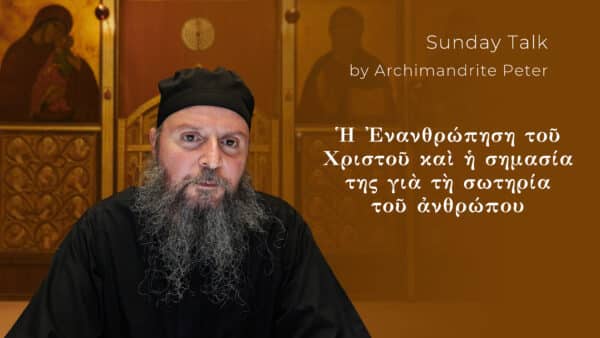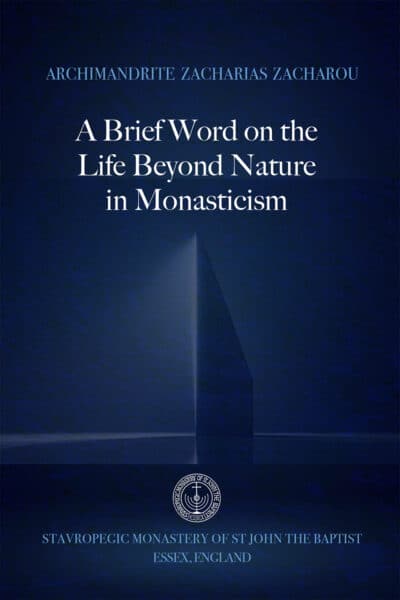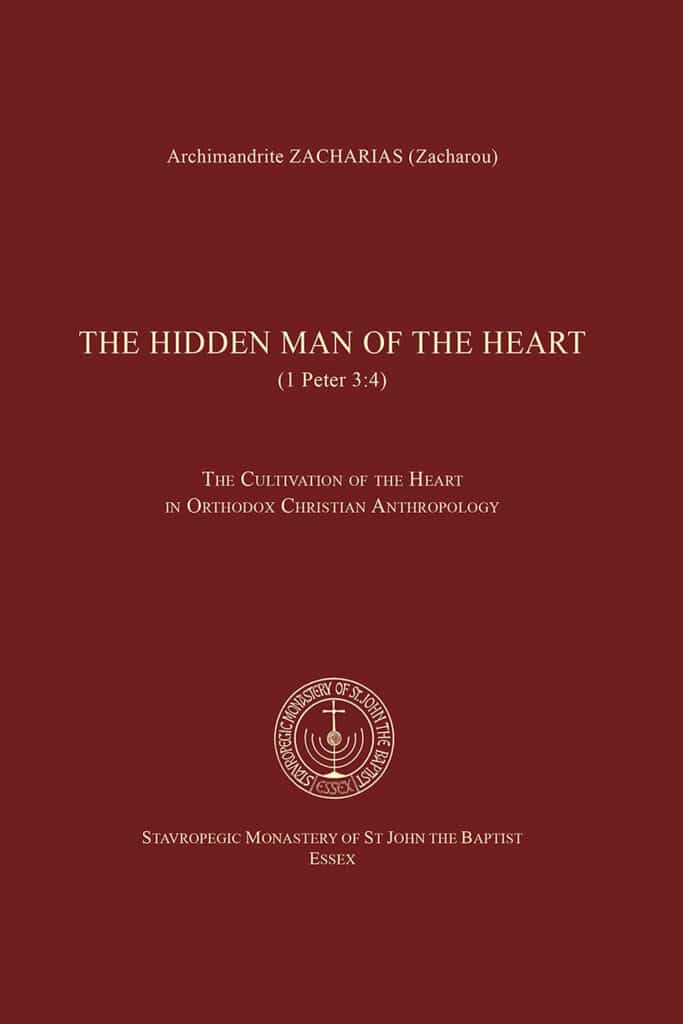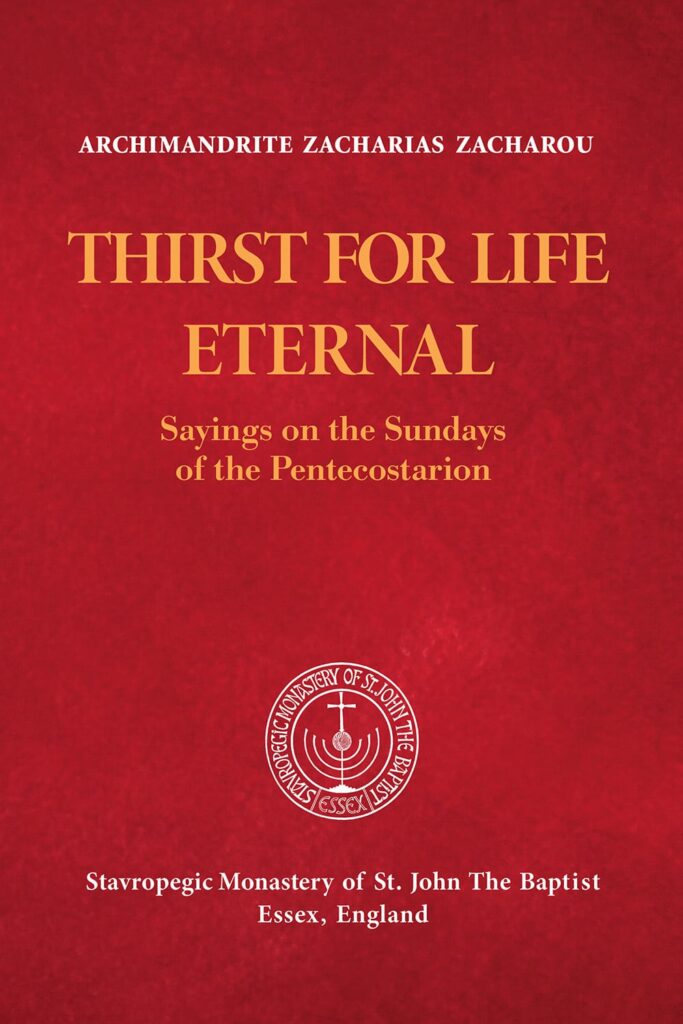The deeper the shame we feel in the sacrament of confession, the greater the power and grace we will receive for the regeneration of our life. Each time we disclose our thought with simplicity and trust to a priest, a small regeneration of our soul takes place. The illumination of the soul by grace imparts the courage needed to make the leap of confession. We admit our failure and the priest then helps us see the target from which we have deviated, restoring us to the path of repentance that leads to life. Our heart is humbled, which attracts God’s healing grace still more.
Before we find repentance, our heart is hard. We feel empty and find life meaningless as it leads into an abyss of nothingness. When we repent and confess in humility, we suffer pain because of the ugliness of our fall. During the straitening of shame, we feel that we are in a crisis, and our soul is exposed, ‘naked and open’.1Heb. 4:13. We need such awareness because then we tell the truth to Him and can be acknowledged by Him. We confess that ‘all men are liars’2Ps. 116:11. and only God is true. By pronouncing the truth, we find a little flame begins to warm our heart, and this heat in our crushed heart then burns up all alien thoughts like flies.
The Hidden Man of the Heart
(1 Peter: 3:4) The Cultivation of the Heart in Orthodox Christian Anthropology
We should always try to do new things with God, to make new confessions to Him of our poverty, of our wretchedness, and find new ways of making life-giving contact with His presence. If, however, we permit ourselves to leave a secret thought lurking in our heart, either of pride, lust or anger, surely, at some point, this thought will lead us to sin. Sometimes we do not deal with such a thought straight away, but instead we try to ignore it, we may even feel we have dealt with it and it will pass, but when we are provoked by something else, that thought can emerge again with greater force and turn into a remark, ruining our precious state which we had acquired with much toil.
Confessing our thoughts also contributes to vigilance of mind, especially in the first years of our spiritual life. Unravelling thoughts in confession weakens the power of the enemy over us. Vigilance is especially obtained by cultivating a contrite heart which is imparted to us through the shame of confession. The shame we bear in the sacrament of confession, time and again turns into power against our foes, freeing the heart from its many bonds so that it may run the way of the commandments with ever increasing ardour. The energy of confession carries within it a crucifying pain, but this pain helps to make up for our lack of asceticism. The grace of the Holy Spirit teaches us in a direct way how to use every one of our members in this unseen warfare: ‘Blessed be the Lord my strength, which teacheth my hands to war, and my fingers to fight.’3Ps. 144:1.
We should not search for eloquent words to make our confession but rather strive to purify and free our heart to love the Lord as He deserves and spread His tender Light to those around us. When the Risen Lord appeared to the disciples, they received the anointing of grace. The Lord then proceeded to pronounce the words that established His Kingdom on earth and laid out the constitution of His Church: ‘Whose soever sins ye remit, they are remitted unto them; and whose soever sins ye retain, they are retained.’4John 20:23. He first breathed the Holy Ghost on them, because it is the Spirit that ‘looseth the bonds and bedeweth the flame’;5See Matins of Pentecost, Irmos of the Eighth Ode. that delivers man from the bonds of sin and cools the burning of the heart that thirsts for God.
If man has not attained dispassion and spiritual freedom, how will he deliver others from passions? If he is himself enslaved and lacks even a small dose of the Holy Spirit within him, how will he impart the fruits of this Spirit to those around him? The apostles received the Holy Spirit freely in order to freely impart His gifts to men and thus deliver them from the dominion of the passions. However, at the same time, they were given power to discern those souls that would remain enslaved to sin. At that moment, the disciples, and their successors throughout the ages, received from the Lord the authority not only to forgive, but also to blot out the sins of those whom they discerned to approach with the spirit of repentance, which renders man suitable to receive remission of sins.
As for those who approach ‘tempting the Lord’,6See Ecclus. 18:23. with self-sufficiency and an arrogant heart, their sins ‘are retained’, for the word of the Lord warns that whatever things are holy should not be given ‘unto the dogs’, nor ‘the pearl’ of the gift of the Holy Spirit ‘cast before swine’.7See Matt. 7:6. The work of the apostles and their descendants is a work of service which is performed in the Holy Spirit, but also communicates the Holy Spirit. It is left to the discretion of the ministers of the Church to become ‘good stewards of the manifold grace of God’ for their brethren.81 Pet. 4:10.
From the moment the Holy Spirit came on earth, He came to reprove the world ‘of sin, and of righteousness, and of judgment’.9John 16:8-9. Firstly, the gift of the Spirit opens our eyes to the abyss of our sin and injustice. We see that ‘all our righteousness is as a filthy rag’,10Cf. Isa. 64:6. and that our deeds are the seed of future hell. Secondly, the Spirit reveals the true justice of God which is expressed in the words Christ said on the Cross, ‘Father, forgive them; for they know not what they do.’11Luke 23:34. These words were pronounced once, but their energy remains forever making the act of repentance possible for all of us. Through this, the Holy Spirit leads us to the only true form of judgment: not judging others but condemning ourselves. Self-reproach is precious in the sight of God because it is a voluntary undertaking of the only true judgment.
Self-condemnation is an indispensable prophetic exploit of humility which we embrace of our own free will. However, as the true state of the hideous mask of our heart will only fully be manifested through bearing shame, we need to be tested by God’s providence allowing also the earthquake of involuntary suffering in our life. In fact, dishonour not only reveals the true content of man’s heart, as Saint Gregory Palamas claims,12Saint Gregory Palamas, ‘Homily 2’, in Homilies, 18, p. 12. but it also reveals the prophetic measure of our heart, according to our attitude of humility. However, unless we are prepared by the noble science of our voluntary self-abasement which preceded we shall not be able to face such trials in a God-pleasing manner without sin.
Our soul burns and suffers in the furnace of repentance in order to be reconciled with God. At times the thought creeps in: ‘Why this folly, is it not madness to keep burning in such a fire instead of living a comfortable life as other people?’ If we accept such a thought, the fire blazing in us dies away, and we come down from the cross of repentance. Pain recedes, but so does the grace that the soul experienced, perhaps imperceptibly, in its negative form. Wretched and poor, we are left without pain, but also void, alienated from the grace of adoption and the blessedness of the Cross. When we learn to recognise His traces even ‘in the midst of the fire of hell’, then this fire is transformed into ‘a moist whistling wind’ and the flames ‘touch us not at all, neither hurt nor trouble us’.13 See Dan. 3, The Prayer of Azariah and the Song of the Three Children, 26.
The Holy Spirit is fire and His gift twofold: purifying and illuminating. The advent of the Holy Spirit seals our reconciliation with God, breaking down the middle wall of enmity between us. All of us have the potential to repeat the mystery of Pentecost in our life as the saints have done throughout the ages. But we have to prepare for this by entering into the upper chamber of our heart and abiding steadfast in the invocation of the Name of the Lord. All our labour in mourning and repentance, sometimes even unto blood, aims to open the door of our heart so that we may ‘come to ourselves’14Cf. Luke 15:17. and return to the promised land, the Kingdom of God ‘within us’.15Cf. Luke 17:21. Our spirit suffers and grieves because the cleansing power of the Spirit causes us sharp pain. This pain is gradually transformed into a sweet breeze, into groanings which cannot be uttered,16Rom. 8:26. crying, ‘Abba, Father’.17Gal. 4:6.
By these means, we build up an indissoluble, strong and unbreakable relationship with the Lord, which blesses all other relationships in this present world, and makes them righteous, in accordance with the law and will of God. Our pain and shame plough the fallow soil of our heart, uprooting the passions of dishonour. The Lord allows His servant to go ‘through fire and through water’ but only to bring him out ‘into a place of refreshment’.
The more consistent our fulfilment of the Lord’s precepts, the closer and more unbreakable our bond with God, and the clearer the sensation of His presence in our hearts. As long as we love the Lord with all our hearts, seek His Face with unquenchable thirst and surrender to His holy will, none of us will be deprived of the grace of the appearing of the Risen Christ and of His quickening presence. Yet, we have no choice but to become resolute, wise, courageous and creative – inventing ways to make a new beginning, approaching the Lord with new repentance every day, repeating unceasingly with the same self-determination: ‘Thou, O Lord, art good, Thou art true. Thou art come to impart life and not death, glory be to Thee.’
When we feel that Christ is living within us, we glorify Him. Remaining faithful to the heavenly blessing, we strive to preserve the treasure of the heart safe from plunder. Although the sensation of grace diminishes, our Heavenly Father is only testing us, so that we may surrender ourselves into His holy hands which will carry us across the abyss to the blessedness of abiding with Him.
The Lord bestows healing upon those who desire it and do not await impassively the end of their torments on earth. Likewise, He gives the soul that thirsts for Him, and seeks with fervent longing for the ‘burning and refreshing’18Matins of Pentecost, Kathisma after the 2nd Stichologia. flame of the Comforter, to drink in abundance of the waters of godliness, of ‘the well of water springing up into everlasting life’.19John 4:14.
????This article draws on materials from the books Thirst for Life Eternal, Monasticism, The Hidden Man of the Heart and Hesychasm.
Questions & Answers
Q: When you want to partake of the Holy Eucharist should you have confession each time?
A: I think we go to confession when it is necessary. First, we start with a general confession, we make our entrance into the church with the general confession. It is like a washing through. By this, we get rid of all the stuff of the old man in order to be able to start afresh a new life. Then from time to time we confess, according to each person’s need, but I think at least four times a year is best.
Thank God we don’t have to commit a crime to confess but from time to time we need to come to the priest and say: ‘I am sorry I don’t love God as I ought to and as He commands us with all my heart and with all my mind and with all my strength.’ This is a very serious confession because that is the greatest commandment and if we fail, we should confess it. And the Lord seeing our humility will give us more often to have the grace to approach Him, to come closer to Him.
From time to time, we need to come to the priest and say: ‘Unfortunately, I’m very ungrateful to God and I don’t thank Him properly for all his benefits to me.’ And in such a manner, we confess our ingratitude. When we confess, we mirror ourselves against the commandment of the Lord. If we lack love towards our fellows, we confess that we come short in showing love to our fellows as the Lord commanded us, we confess that we have failed in the second great commandment like the first. There are certain things that we can always confess before God. We all succumb to mistakes and errors, and myself most of all.
We cannot say: ‘We have confessed once and it’s enough. It’s not necessary.’ It’s like when we have a garden full of vegetables and promising fruit. We keep weeding the garden. We do not weed it just once and then leave it. We keep weeding so that we can get more and better fruit from the garden. It’s the same with confession. If we keep weeding our heart from the evils that the enemy wants to install within it then surely we will do better. We will have a stronger heart to stand against the face of the enemy.
I think it is good to have a general confession in the beginning. And then to confess according to the need. We should regularly give an account to God and say to Him not only the bad things that we did, but things in which we come short, which we have not done, that we have neglected. And in this way, if we are serious in our relationship with the Lord, He will deal with us seriously and He will make our love life very rich with His grace.
Q: Christ said that if you forgive those who trespass against you, then He will cancel your sins. So does that mean there are two ways of confessing – one by confession to a priest and one by forgiving other people who trespass against you?
A: There are many ways, not only two. For example, when we give money as charity, we help to receive forgiveness for our sins. Every time we commit a godly act, a good act that is according to the will of God, we receive grace, we receive benefit, and that grace erases sin from our hearts. There are many ways, not only two ways, but the most important precondition to receive forgiveness is to forgive. If that doesn’t exist, if we don’t do that, all the other good things by which we can receive the benefit of forgiveness become neutralised and annulled.
Q: So basically, the best way is not just confession but to be a good person as well?
A: Yes, of course. And you know, the priest is like the secretary of the Church. When you want to become a member of a club, you pass by the secretary and there you fill in some papers and so on and you become a member of that organisation. In the Church, it is the same, the priest is the one who will certify that we are reconciled with God, and we are members of the Body of Christ, of the Church and worthy to receive all the benefits of this Body, that is, the sacraments of the Church. The priest becomes a witness, an instrument of God, who helps people come closer to Him.
The priest is like a man who stands with one hand on the shoulder of God and the other hand on the shoulder of man, mediating for their reconciliation, to restore their friendship. The priest must love God and people, but his love for God must be strong in order to impart this love to the people he tries to serve.
And one thing I wanted to say, don’t be afraid to humble yourselves before the priest, because he is not someone who wants to exploit your humility. He is someone who wants to help you. Actually, I would like to tell you something that I learned when I became a priest and a confessor: When the priest sees someone coming to him and humbly confessing, he is filled with awe and fear because he sees that the hand of God is upon that person whom God wants to help, and he does everything to work together with God for the regeneration of that person. So don’t be afraid. It’s a great moment and the priest tries to honour those that come to confess to him.
I remember Father Sophrony clearly telling me: ‘When people come to confess to you, don’t look at them as they are. Look at them as they can become when they receive the grace of Christ.’ Always in the back of our head, we have in mind to think about the honour these people, the images of God, may have, that they may receive from this Sacrament of the Church.
Q: If we feel that we are unworthy or we are in some turmoil, should we restrain ourselves from communion?
A: Sometimes we feel burdened before the Liturgy because we remember things: some words we said or some thoughts we had and so on. And we may feel uncomfortable and even doubt whether to have communion or not? What to do in such a case? It depends on how serious the sins and thoughts are and their effect on us. But in general, if it is not too serious, the best way is to repent before God with a fervent supplication and ask God to heal us, to heal and cleanse our heart and our soul from an evil conscience. As we say in the prayer of the Cherubical hymn, ‘Cleanse my heart from an evil conscience’. If we persevere in this prayer, God gives us freedom and grace and we feel unburdened, especially if we have prayed with tears. Tears are always healing. The tears of repentance always bring healing to the soul. And then we go for the Liturgy and we go for communion.
It may be the conditions and the circumstances are difficult and we cannot always see our Father and make our confession. Having offered sincere repentance to God ourselves and having received directly even His forgiveness, afterwards, we go for confession. When we go to see our spiritual father, we can say the things to him, though God has provided both forgiveness and healing. We go to confession in order to put the seal on that which has happened and make us stronger so as to become stronger and stronger against the face of the enemy and against sin.
It’s very delicate. This is a very delicate question and there are no recipes for this, but with God each one of us has a unique path towards him and we must all work hard not to deviate from this path. We must scream to him constantly, to keep us on the way, and the Way is He Himself, He said: ‘I am the way, the truth and the life.’ And if we do that the Lord will strengthen us and impart to us his grace, which justifies enlightens and even sanctifies.
Q: Often we priests can see people who come to confess, but they do it in a mechanical way and they confess again and again and again. How important is it for people to learn through prayer to acquire personal experience, and find out for themselves how to overcome the temptations?
A: Well, that is why before we go to confession, we pray that God shows us the things that need correction, and the things in which we come short, so we may mention them in our confession. In the Doxology, which we sing before the Liturgy, we say: ‘In Thy Light shall we see light.’ In the Light of the grace of God, in the enlightenment that God gives us, then we have we have light. We have enlightenment to see our true state, and that we present to God. Otherwise, we cannot progress. It’s a relationship. It’s our relationship with God. It is a personal relationship and we must grow in this personal relationship with Him. God must become our friend. This is the meaning of reconciliation with God. In Greek, the word for reconciliation means ‘becoming friends again’ with God. We must become the friends of God. And then of course, there where the Lord is: there are His friends, as He promised ‘There where I am there shall my friends and my servants be’.20See John 12:26
Footnotes
- 1Heb. 4:13.
- 2Ps. 116:11.
- 3Ps. 144:1.
- 4John 20:23.
- 5See Matins of Pentecost, Irmos of the Eighth Ode.
- 6See Ecclus. 18:23.
- 7See Matt. 7:6.
- 81 Pet. 4:10.
- 9John 16:8-9.
- 10Cf. Isa. 64:6.
- 11Luke 23:34.
- 12Saint Gregory Palamas, ‘Homily 2’, in Homilies, 18, p. 12.
- 13See Dan. 3, The Prayer of Azariah and the Song of the Three Children, 26.
- 14Cf. Luke 15:17.
- 15Cf. Luke 17:21.
- 16Rom. 8:26.
- 17Gal. 4:6.
- 18Matins of Pentecost, Kathisma after the 2nd Stichologia.
- 19John 4:14.
- 20See John 12:26





